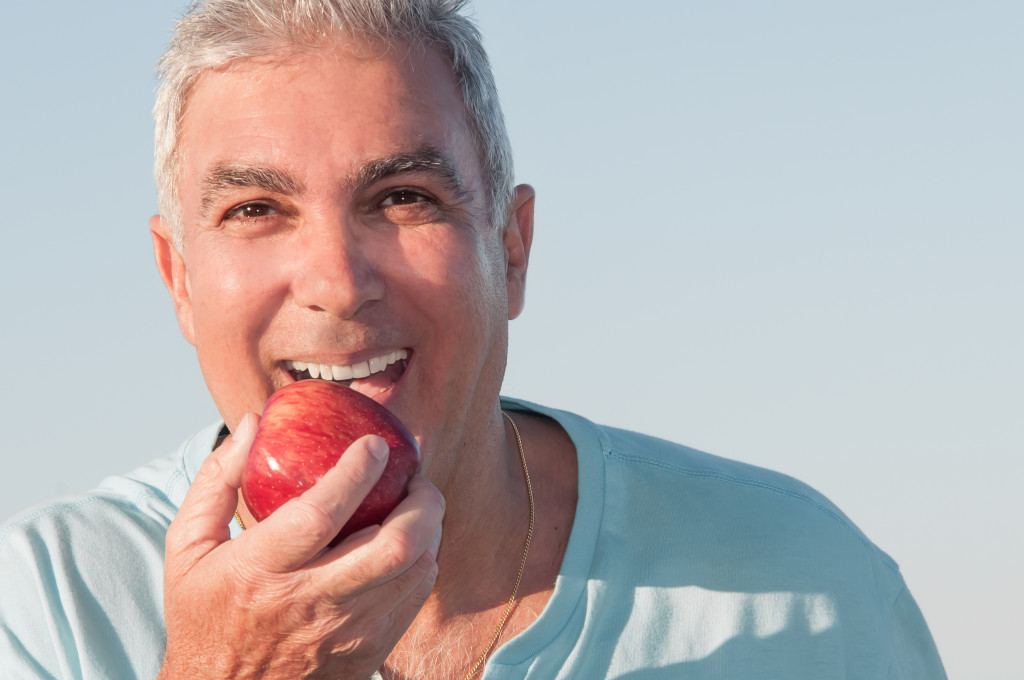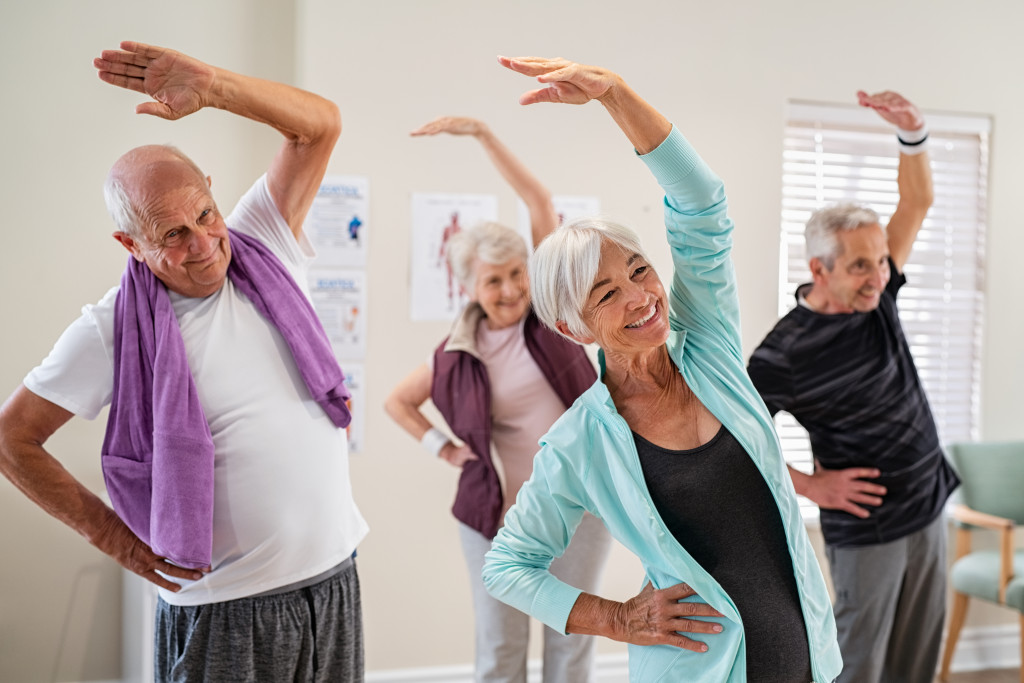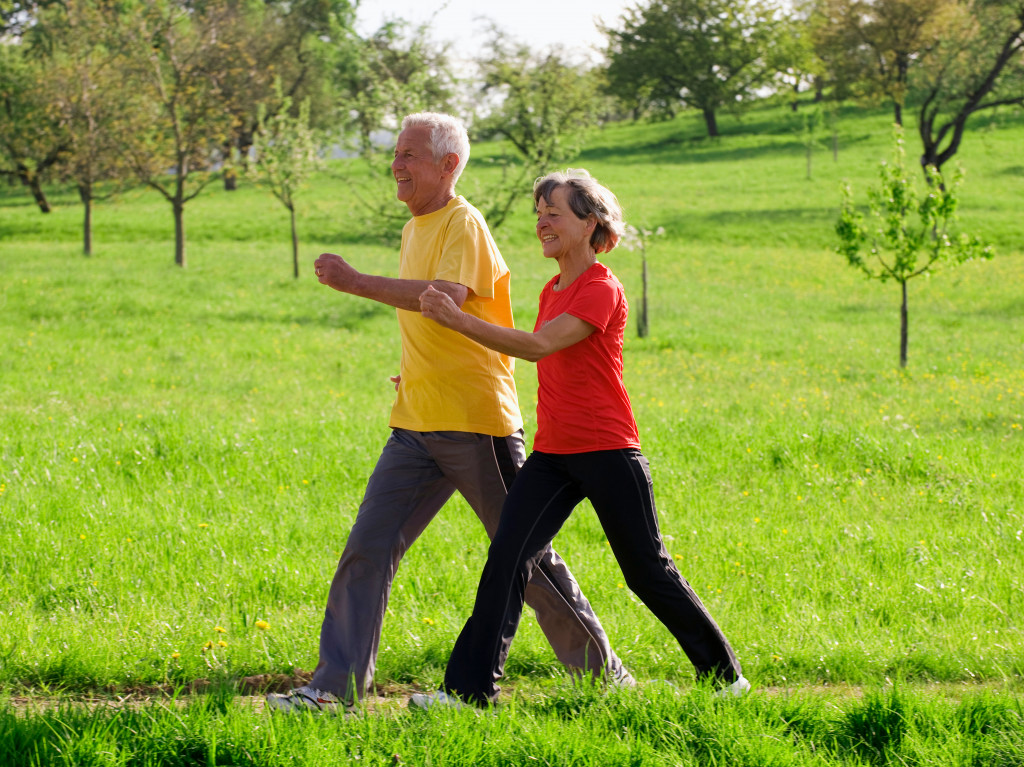- Encourage seniors to eat a balanced diet rich in essential vitamins and nutrients.
- Simplify daily routines and create a safe home environment for senior adults.
- Support seniors to engage in physical activities and exercises, such as walking and swimming.
- Schedule regular medical checkups and pay attention to changes in mental health.
- Encourage connections with friends and family through social activities.
According to the projections of the Congressional Budget Office (CBO), the average number of people aged 65 or older eligible for Social Security and Medicare and less likely to work will be approximately 73 million from 2023 to 2053. This number is almost twice the average number of people in that age group from 1983 to 2022.
Aging is an inevitable process, and as people grow older, they experience a decline in their physical and mental abilities. In most cases, seniors tend to suffer from chronic diseases like diabetes, hypertension, and Alzheimer’s.
While such health challenges may be part of aging, seniors can still enjoy a healthy and active lifestyle. More often than not, family members play an essential role in ensuring that seniors’ health and fitness needs are met. This blog post highlights strategies for supporting senior family members to achieve and maintain their fitness and overall health.

Encourage a Balanced Diet
The quality of a person’s diet significantly impacts their health and fitness. Therefore, it’s critical to encourage senior family members to eat a balanced diet rich in essential nutrients such as vitamins, minerals, and fiber. This includes whole grains, lean proteins, fruits, and vegetables; this can help seniors maintain healthy body weight, manage diabetes, lower blood pressure, and reduce the risk of heart disease. Additionally, limiting unhealthy fats and sugars can positively impact overall health.
Cook at Home
Encouraging seniors to cook meals at home is an excellent way to help them achieve a balanced diet. Home-cooked meals are often healthier than dining out or eating packaged or processed foods. Encourage seniors to make healthy choices when selecting ingredients for cooking, such as using lean proteins, fresh fruits and vegetables, and low-fat dairy products. Additionally, portion control can help seniors avoid overeating or consuming too many unhealthy calories.
Simplify Daily Living
It’s essential to simplify seniors’ daily routines to promote overall wellness. Consider installing grab bars in the bathroom, replacing doorknobs with levers, and using slip-resistant rugs to reduce the risk of falls.
Safe Home Environment
Ensure a safe home environment by installing smoke detectors, keeping the house clutter-free, and providing adequate lighting. Encourage seniors to focus on nutrition by stocking the pantry with healthy foods and giving easy-to-make meals.
For senior family members who require assistance, you can let them live in a reputable assisted living facility. The facility can provide meals, laundry, and other services to make life easier. Additionally, it should have registered nurses and trained caregivers on its staff to assist them whenever necessary.
Regular Social Activities
Encourage seniors to stay socially active by attending regular social activities. This can include weekly trips to the mall, playing cards with friends and neighbors, or participating in local senior centers’ activities. You can even arrange weekly visits from a caretaker who can help with grocery shopping, cooking meals, and taking medication.
Schedule Regular Medical Checkups
Regular medical checkups are crucial for identifying health problems early on and preventing complications. Ensure that your senior family members attend regular checkups with their physicians and follow their doctor’s recommendations. Besides, monitoring medicines carefully and following the prescribed treatment plan can help promote health and wellness.
Mental and Physical Health
Furthermore, addressing any changes in mental health and physical well-being is essential. Ensure that a senior relative gets necessary care if they feel unwell or moody. For example, an elderly family member may not eat well or lose energy. In these cases, it is necessary to consult the doctor so that appropriate treatment can be given.

Support Exercise and Physical Activities
Regular exercise and physical activities are vital for seniors’ physical and mental well-being. Encourage your senior family member to engage in low-impact exercises like walking, swimming, bicycling, or stretching. Such activities can increase their balance, flexibility, mood, and energy.
Exercise with Friends
Additionally, working out with a group can be socially engaging for seniors while promoting physical fitness. You can also encourage them to incorporate strength training and aerobic exercise into their routine. Make sure they have the proper equipment, such as walking sticks or weights, and visit your local gym to see available classes.
Finally, be sure to remind your senior family member that physical activity is essential to a healthy lifestyle for seniors. Seniors can enjoy a greater quality of life with regular exercise and physical activities.
Supporting senior family members’ health and fitness needs requires a comprehensive approach that promotes a balanced diet, exercise, regular medical checkups, social interaction, and a safe environment. Family members can play an essential role in ensuring their seniors maintain overall health by taking proactive steps like simplifying daily routines and encouraging interaction. By implementing these strategies, older adults can age gracefully while enjoying good physical and mental health.

